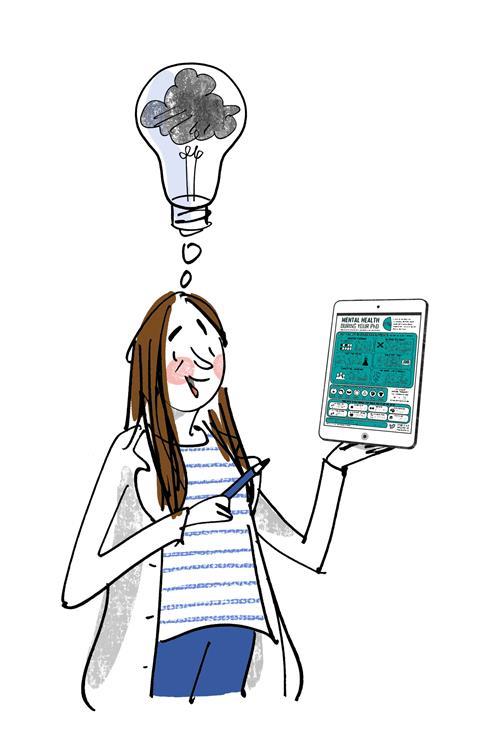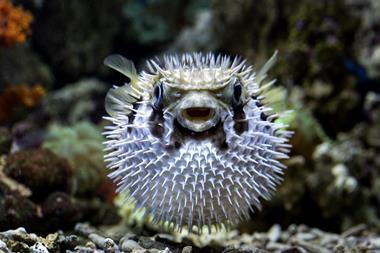More needs to be done to improve the mental health of PhD researchers

As undergraduates, we work on experiments – be it a titration, an ELISA, or synthesising paracetamol – with known outcomes. We are programmed to think that there is one correct answer, and anything else is failure.
Enter PhD research and the quest for the unknown. The bar has moved; it is impossible to be ‘right’ about something we do not yet know the answer to. On top of this major shift in how we define and measure success, researchers must quickly become accustomed to work-life balance struggles, fierce competition for academic positions, the shift from hard deadlines to long-term goals, feelings of isolation, and, all too often, bullying and harassment. They now also have the weight and uncertainty of a global pandemic on top of these difficulties. It’s no wonder that graduate mental health feels like a chemical reaction that is about to bubble over.
It was impostor syndrome that really impacted my own mental health during my PhD. I felt I did not deserve to be where I was, that I had just been lucky. I was waiting for one of the incredibly gifted chemists around me to figure out that I could not remember every single part of a chemical equation I had learned years prior, or that I could not recite the molar gas constant to more than three significant figures (I still can’t!). If I didn’t know these things, how could I be a real chemist? It is only with time that I have come to realise that there are many facets to being a successful scientist. It is our ability to learn, adapt and persevere that defines us, not our ability to remember textbook definitions.
For the #RSCPoster event held on Twitter in 2019, it is fair to say I deviated from the ‘textbook definition’. Instead of exploring the chemistry I do day-to-day, I created a poster exploring ‘Mental health during a PhD’, aiming to summarise many of these difficulties often faced by doctoral candidates in chemistry. I was unsure about how my poster would be received, but I decided to take the leap anyway. The response was huge, far beyond what I expected, with over half a million impressions, and the poster ultimately went on to win the audience participation prize for that year. From this it became clear to me that there are many chemistry PhD students out there experiencing mental health concerns, and we need to do more to help them.
A list of my #mentalhealth posters so far to highlight what I do for new followers. I make posters to raise awareness of issues people face in academia. They are all free to distribute. (1): Mental Health During your PhD - what you might experience #phdchat #AcademicTwitter (1/n) pic.twitter.com/zsaLnxbFxS
— Dr Zoë Ayres (@ZJAyres) February 12, 2020
We must recognise that improving the mental health of our PhD students goes hand in hand with improving diversity and inclusion in the chemical sciences. I certainly found my feelings of imposter syndrome were compounded by a lack of role models as I ventured further into academia, looking for strong female representation in professorial positions but finding few. I felt disheartened and wondered why I was doing the PhD in the first place; I felt someone like me never had a chance to beat the odds. If I experienced these feelings as a white woman, with a brilliant female PhD supervisor, what about those with less support, or those who belong to other even less represented groups within the chemical sciences? Given that increased stress and self-doubt is associated with impostor syndrome, it is all too evident that mental health can be heavily impacted and something more needs to be done.
It is only by having a diverse community of scientists that we can solve the biggest scientific challenges we are faced with today, be it climate change, green chemistry or a global pandemic. The wellbeing of researchers must come first in order to not lose vital talent, and ultimately improve overall representation in chemistry. We also need to raise awareness of issues that may impact the mental health of students, create more training and support to navigate the transition from undergraduate to graduate study, and provide clear reporting routes for harassment and bullying in our departments.
Finally, we must be open to discussion and start the conversation around mental health. Even now, writing this article, I wonder if I am truly the right person to be talking about mental health during a PhD to the wider chemistry community. Then I realise – why shouldn’t it be me? It is time to quieten my inner critic. I hope by speaking out, I can encourage others to do the same and that together we can show the next generation that they belong in the chemical sciences. Perhaps, in this time of vast change, our view on mental health can change too?
I can only wonder why my poster resonated with so many. Perhaps an online discussion is more palatable than a face-to-face conversation. Or maybe, much like in scientific research, only by visualising the problem can we truly understand it and work towards a solution.












1 Reader's comment